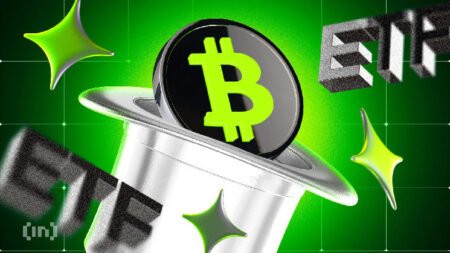As the interest in decentralized finance (DeFi) tokens grows among institutional players, the recent significant withdrawals made by Galaxy Digital from cryptocurrency exchanges serve as a clear indicator of this trend. The company removed over 1 million UNI tokens, valued at nearly $19 million, and over 27,000 AAVE tokens, valued at over $10 million, from exchange wallets. This strategic accumulation of DeFi assets underscores Ethereum’s position as a major hub for decentralized finance and highlights the growing confidence in the long-term value of these assets.
This withdrawal activity, which took place on major exchanges like Coinbase and Binance, signifies Galaxy Digital’s deliberate move to take ownership of these tokens in self-custody wallets. By shifting these assets away from exchanges, the firm aims to minimize exposure to exchange risks while positioning itself strategically for future growth. UNI and AAVE, as essential components in the DeFi ecosystem, play a crucial role in facilitating decentralized trading and lending protocols, making them attractive assets for strategic investments.
The timing of these withdrawals coincides with a surge in interest in DeFi projects, as institutional players seek to capitalize on the utility and potential value of these tokens. The accumulation of DeFi tokens by institutions and whales often influences broader market movements, with significant withdrawals potentially signaling impending price shifts. As demand for UNI and AAVE continues to rise, these tokens could see substantial momentum, especially if smaller investors gain confidence from institutional activities in the market.
The growing maturity of the DeFi sector, coupled with the continued interest from institutions like Galaxy Digital, solidifies Ethereum’s role as the backbone of the DeFi ecosystem. The strategic withdrawal by Galaxy Digital aligns with the broader trend of institutional capital flowing into DeFi projects, showcasing not just investment but also a desire to influence governance decisions within these protocols. This accumulation of tokens like UNI and AAVE sets the stage for further growth and innovation within the DeFi sector, attracting both retail and institutional investors.
As the DeFi sector enters a transformative phase in the cryptocurrency market, the focus remains on the potential of tokens like UNI and AAVE to reshape the future of finance. Whether this accumulation marks the beginning of a broader rally or a consolidation phase, it is evident that DeFi is no longer limited to niche crypto circles. With Ethereum’s ecosystem expanding and adoption on the rise, tokens like UNI and AAVE are poised to play a central role in shaping the financial landscape, offering both capital and innovation to investors seeking exposure to the growing DeFi market.



















